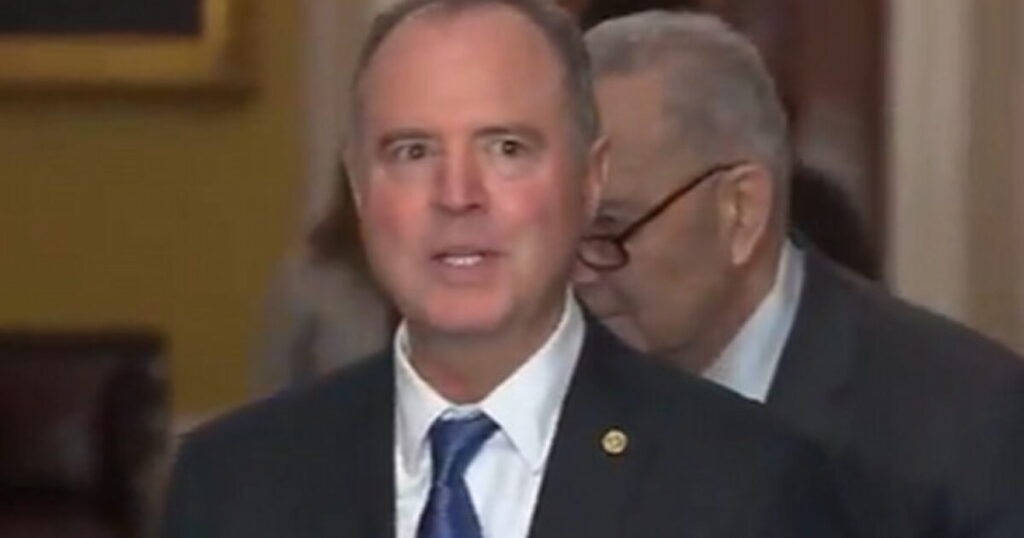Former California Representative and current U.S. Senator Adam Schiff recently made headlines for his comments regarding the idea of President Joe Biden potentially sending political opponents to jail, specifically referencing former President Donald Trump. Appearing at a press event with Senate Majority Leader Chuck Schumer, Schiff expressed his disapproval of such threats, arguing that it is not a democratic approach to governance. This stance prompts a significant amount of scrutiny, given Schiff’s own history of pronounced opposition to Trump during his presidency. The question remains: can Schiff truly distance himself from a narrative that has heavily favored prosecuting Trump and his allies, while simultaneously disregarding the political tactics used against them?
Schiff’s public statements suggest a need for bipartisan cooperation post-Trump presidency, dismissing the suggestion that pardons are necessary for members of the January 6 committee, of which he was a prominent member. He insisted that they acted within the law, stating, “I don’t think the incoming president should be threatening his political opponents with jail time.” Schumer echoed this sentiment, reinforcing the idea that Schiff and his committee members had not broken any laws. However, the irony of such statements is not lost on many, considering the relentless pursuit of legal action against Trump by many Democrats, including Schiff himself. This contradiction raises an essential question about accountability and the narratives constructed during Trump’s administration.
In recent years, numerous Democrats and their media allies have openly discussed and even advocated for sending Trump to prison as a culmination of various investigations. The very notion that Schiff and others now expect a fresh start devoid of past grievances is baffling to many observers. Critics argue that this selective amnesia highlights a significant hypocrisy; Democrats, who fervently sought Trump’s prosecution, seem reluctant to acknowledge the implications of their actions now that they find themselves on the opposite side of the political spectrum. The persistent calls for accountability squarely against Schiff’s newfound stance raise questions about his credibility and intentions moving forward.
Schiff’s comments come at a time when Trump is emphasizing a vision for the future, with a focus on the country’s success rather than personal vendetta. Yet, despite Trump’s assurances, the media atmosphere remains charged with speculations and fears surrounding his potential return to political power. Schiff’s rhetoric, seen by some as a defensive posture, attempts to reassure the public of a commitment to democracy while evading the contentious history of impeachment and investigations that marked the Trump years. This dichotomy creates tension, as many people rightfully remember how Democrats rallied for certain punitive measures and are now being asked to overlook them.
The current political climate underscores the difficulty in bridging divides caused by years of animosity. Schiff’s beliefs about democratic discourse reflect a broader struggle within the party regarding its next steps in an era that could again see Trump in power. As Schiff and others propose a need for healing and civility, observers are left questioning the feasibility of such ideals when the political strategy of the last administration was characterized by allegations, aggression, and personal attacks. As the upcoming elections loom, the ability to reconcile these opposing narratives, particularly in the wake of personal agendas, becomes paramount.
In conclusion, while Schiff advocates for a more democratic approach devoid of imprisonment threats, the convoluted history of his and his party’s actions against Trump complicates this narrative. The urge for unity and progress in the political sphere must address the past instead of dismissing it outright. Without accountability and an honest reckoning of the divisive rhetoric employed over the years, the prospects for genuine bipartisanship may remain uncertain. As the country grapples with the implications of the Trump presidency, the challenge ahead for leaders like Schiff lies in navigating the difficult waters of trust, integrity, and shared values moving forward.

